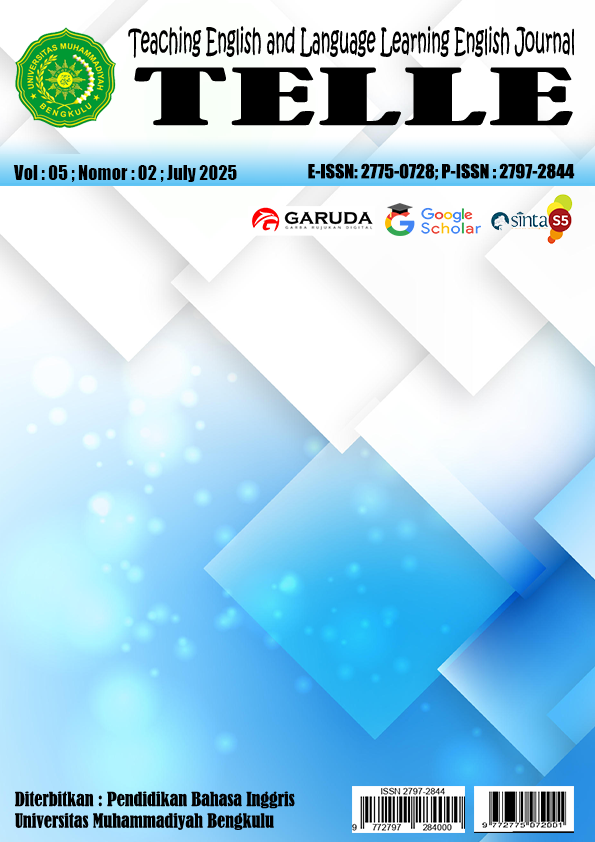THE IMPACT OF KAMPUS MENGAJAR COLLABORATIVE ACTIVITIES ON STUDENTS' LITERACY: A NARRATIVE REVIEW
DOI:
https://doi.org/10.36085/telle.v5i2.8426Abstract
In an era where literacy is fundamental for personal and societal advancement, enhancing students’ literacy skills has become a pressing educational priority, particularly in Indonesia, where national assessments show consistently low literacy performance among elementary students. This study explores the role of collaborative activities in the Kampus Mengajar (Teaching Campus) program in improving students’ literacy competencies. Rooted in the rationale that engaging, student-centered environments—through initiatives such as library revitalization, the creation of wall magazines, and reading corner development—can foster reading interest and writing ability, this research aims to investigate how such interventions influence students’ literacy engagement and outcomes. Employing a qualitative methodology in the form of a narrative literature review, the study analyzes current literature and field reports from relevant educational initiatives conducted in 2024 in Bengkulu, Indonesia. The findings reveal that collaborative activities significantly improve literacy by increasing student motivation, promoting creativity, and supporting interactive learning environments. In particular, revitalized libraries attract more student visitors and encourage book borrowing, wall magazines nurture creative expression, and reading corners cultivate a habitual reading culture. These results underscore the importance of collaborative, community-based interventions in literacy development and offer valuable insights for education stakeholders seeking to enhance literacy at the elementary school level.





